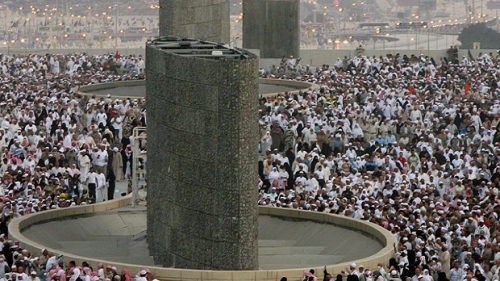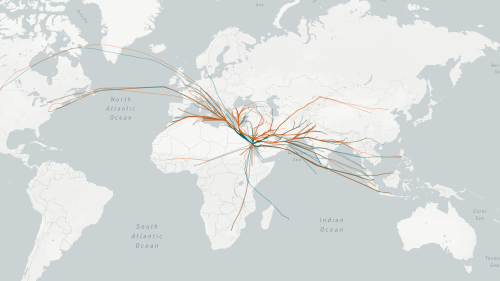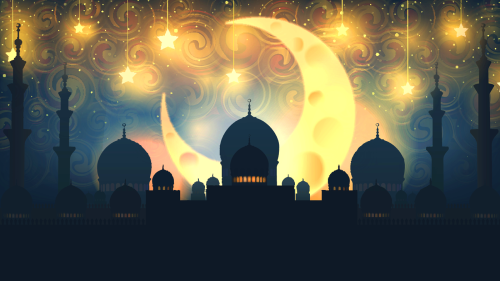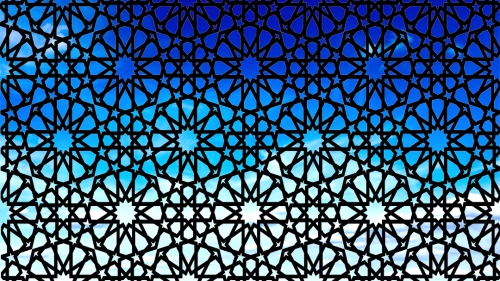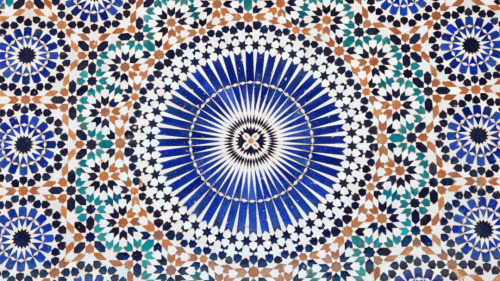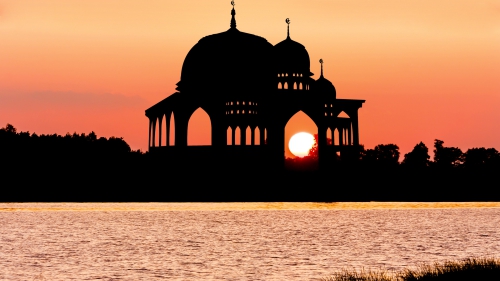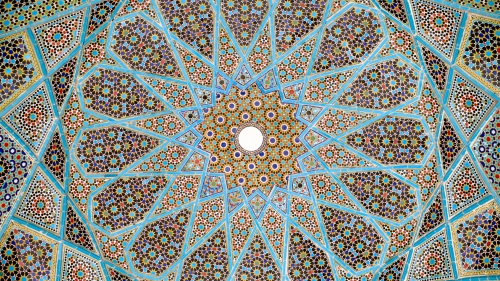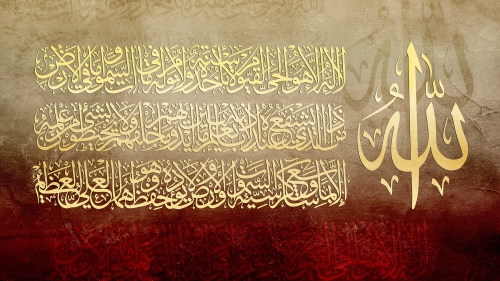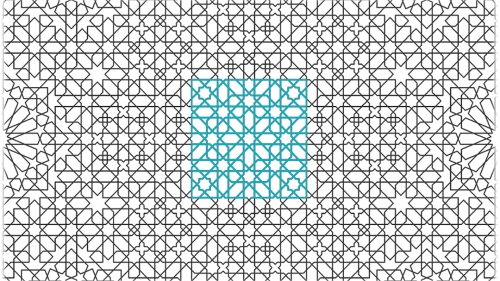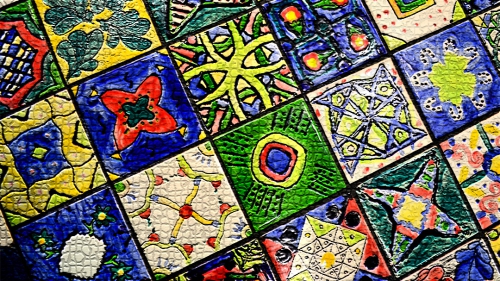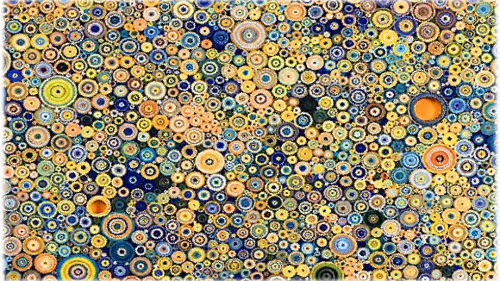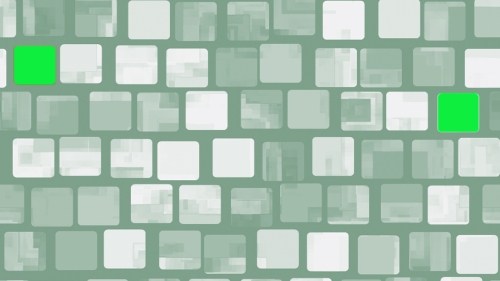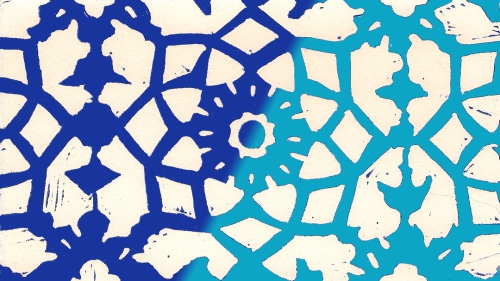How to Get Closer to God
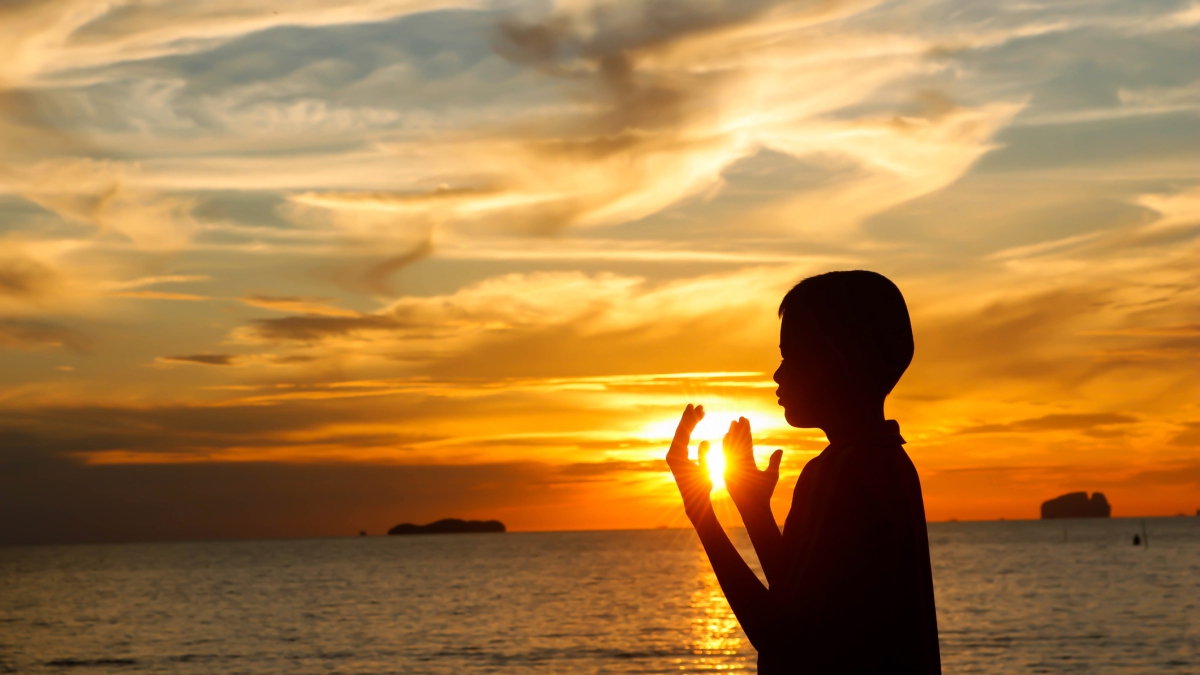
What does “getting closer to God” mean? Obviously, it does not mean getting closer to God physically, as that would be contrary to the Quranic concept of God - God is not situated in a particular place in space. God says, “I am closer to you than your jugular vein” (50:16); and again, “Wherever you are, I am there” (2:115, 7:7).
Getting closer to God therefore means: Emulating in our own characters, as far as possible, the attributes of the perfect Self, which is God. The more we emulate these attributes the closer we get to God. But, emulation of these attributes must occur within society, not alone. Concepts of God that teach personal salvation through individual meditation or prayer are non-Quranic. Quranic salvation can only be possible by restructuring the present political and economic systems so that they reflect the universal and permanent attributes of God given in the Quran.
For example, since God is universally merciful, forgiving, fair and just, so should be the social order operating on behalf of God. Just as God provides sustenance and nourishment to all, so should the economic system established on His behalf. Just as God guarantees universal human rights and freedoms, so should the political system established in His name. Those who establish such a system and direct their daily affairs by it, will gradually start reflecting the attributes of God in their own characters, i.e. they will take on the “color” of the attributes of Allah in their own characters. They will boldly proclaim, “We take our color from Allah, and who is better than Allah at coloring” (2:138). This is what “sibgha-tullah” or “the color of Allah” means in this famous Quranic verse:
صِبْغَةَ اللَّـهِ ۖ وَمَنْ أَحْسَنُ مِنَ اللَّـهِ صِبْغَةً
Under such a system therefore, people—individually, as well as, collectively—will start getting closer to the one true God since they will have the same objective standard of Asmaaul ‘Husnaa, the most balanced attributes of God, as their common goal: وَلِلَّـهِ الْأَسْمَاءُ الْحُسْنَىٰ (7:180) – AND GOD'S [alone] are the attributes of perfection [Asad]. This is bound to lead to universal brotherhood and unity of humankind, the ultimate objective of the Quran (2:213). In this system, individuals colored with the color of Allah’s attributes work and struggle together in a synergistic fashion, helping each other, being driven only by the conviction of this one common goal – closeness to God. This common goal requires that we understand clearly some other facets of our relationship to God as well.
The main characteristics of the “self” are: uniqueness, independence and freedom. When I say, “‘I’ am free,” it really implies that my “self” is unique, it is free and not dependent on any other “self”, and it has the freedom of choice and action. God, being the perfect “Self”, is completely unique (Allahu A‘had); He is absolutely free and is not dependent (Allahus Samad); He begetteth not, nor was begotten; and there is none like unto Him (112:1-4).
Therefore, in this life, human beings must strive to move closer to God by developing these latent characteristics of the “self”. To facilitate this development, the “self” needs some limitations, which must be self-imposed rather than externally imposed. In fact, external imposition destroys the “self”. God says in the Quran that although He has absolute power and control over His creation, He too has put some limitations on Himself, for example, to be merciful and to help the believers: Say (O Prophet): “To whom belongs all that is in the heavens and the earth?” Say: “To Allah.” He has prescribed Mercy for Himself. (6:12). It is Our duty to help the believers (6:54, 7:156).
According to the Quran, this participation between God and believers occurs through a contract. In Islam, Believers must enter into a contract with Allah by selling their lives and property to Him in return for Jannah (9:111). Therefore, in this way, they become helpers of Allah for carrying out His mission in this world (61:14), while Allah makes it His duty to help them. Since Jannah encompasses both this world as well as the Hereafter, believers pray and must strive for a good life on earth as well as in the Hereafter (2:201).
Another example of Allah’s self-imposed limitations in spite of unlimited power is that Allah does not force anyone to accept His message. He has given complete freedom of choice to human beings to accept or reject it (18:29). He could make every human being a believer but He does not (32:13, 10:99).
The God of the Quran is not a dictator
There is no doubt that God has complete control over His creation (5:120, 9:116, 23:88). He can do anything (2:117, 6:73, 14:27, 19:35, 36:82). No one can question Him (21:23). But does He use His powers arbitrarily like a dictator or a king? Or does He follow some standard or pattern? There is a set pattern according to which God produces results. The result of our actions is produced according to the law related to God’s permanent attribute for that particular action as set forth in the Quran. In the Quranic concept of God, people do not have to individually please him but have to follow His laws, which have been clearly outlined in His book, The Quran. The God of the Quran does not bend towards anyone. He has permanent and objective attributes and is the fountainhead of unchangeable laws called KALIMAT-I-ALLAH (6:34, 6:115, 10:64, 18:27), SUNNAT-I-ALLAH (17:77, 33:62, 35:43, 48:23), and KHALQ-I-ALLAH (30:30) by the Quran. Therefore, the result of our actions depends on whether or not the action was performed according to His law. If the result is different from expected, then one has to change one’s actions. One should not keep on doing the same thing while trying to please God by prayers and sacrifices to persuade God to change His laws. One has to align oneself with His laws, not vice versa.
Khalifa ‘Umar (R) once said that his aim was to stop the people’s prayers from reaching God. This intrigued the people. He explained that people normally pray to God when they are facing some problems. His duty as Khalifa was to solve their problems so they would not have to pray to God for their solution. If they needed to pray to God, then that would, in effect, be a complaint against him to God. Interestingly, this means that the system, implemented according to the Quran, is supposed to fulfil God’s promises to human beings. God does not directly help human beings. He helps them through his servants (Prophets and true believers) who implement His plans in the human world by using the Quran as the Constitution of God on earth. This brings us to another important aspect of the concept of God, i.e. God’s laws are not only unchangeable but they are universal.
Universality of God’s Law
In the physical world, we readily accept the universality of God’s laws. For example, an experiment to liberate hydrogen and oxygen from water will produce the same result under the same conditions no matter where that experiment is conducted. We owe our health and welfare, and even our life to the universality of these laws.
The same applies to another set of God’s laws now safely preserved in the Quran. It does not matter if we believe in them or not. These laws have their own objective existence and they work inexorably in the human world just as the laws of nature work in the physical world. The God of the Quran is the Nourisher and Cherisher of all the worlds (Rabbil ‘Alameen) and the Nourisher and Cherisher of all humankind (Rabbin-Naas). He is the Sovereign (Malikin-Naas) and God of all humankind (Ilaahin-Naas).
Therefore, in this concept of God, there is no place for discrimination based on gender, race, ethnicity, language, economic opportunities, political power, or social status. The Quranic God is equidistant from every human being. Only those people who synchronize their wills with the will of God get their “color” from Him. In turn, those who get colored by God reflect universal God-like attributes and become members of one family. In this way, there is no contradiction in their inner and outer lives. With this concept of God, there is no push and pull, no effort through prayers and rituals to bend God in anyone’s favor. This leads to yet another aspect of God’s objective laws pertaining to humans: whether or not one believes in this concept of God, every human action produces a reaction based on God’s law of requital.
God’s Law of Requital
Although human beings have been given complete freedom to choose any action, this freedom is ended once the choice is made. Human beings do not have the freedom or authority to change the result after the action has been performed. This is called the law of requital. The following verses in the Quran clearly state the consequences of human actions: 2:21, 2:179, 2:183, 2:185, 2:189, 3:123, 3:129, 3:199, 5:35, 7:69, and 7:157.
It is our daily experience that if we violate the physical laws of nature we suffer the consequences right away. For example, fire burns, floods drown, gravity pulls, lightning strikes, and tornadoes tear things in their path. Each one of these forces of nature causes physical injury or death if we do not follow the laws of nature or take precautionary measures. But how, we may ask, does the law of requital operate in the human world? Why do cheaters get away if not caught by man-made laws? Why do liars seem to flourish? Why do people who manipulate the system using loopholes get further in life than the honest? Why do the rich and the powerful thrive while exploiting the poor and the weak? Why are murder, torture, and rape of innocent human beings allowed to go on in many parts of the world? Why does God not do anything to stop it? Why does God’s law of requital not punish the perpetrators of these crimes immediately as it punishes those who violate the physical laws of nature? In answer to these questions, some religious scholars teach the poor and the subjugated to be patient, to accept their destiny, to look for reward in the Hereafter. On the other hand, some people turn to mysticism, wrongly thinking they can get closer to God by renouncing the material world (57:27). According to this thinking, the best way to cure a headache—forever—is to get rid of the head. This concept of God teaches escapism from the real problems of the real world.
Can it be said, then, that God’s law of requital is not working in the human world? Are people who commit crimes and who are not punished immediately, as in the physical world, getting away? Is there no higher law before which they are accountable here in this world? Let us be assured, the law of requital is working—incessantly and unremittingly, right here in this world. We might be deceived into thinking it is not, because the time scale for this law is different than the physical laws of nature. It is as if one were keeping time on a clock from which the seconds and minutes indicators were removed and one is fooled into thinking the clock is not running. This is because one day in God’s calendar may be equivalent to one thousand (32:5) or even fifty thousand years of our time on this planet (70:4).
Another distinction between the laws of nature in the physical world and the law of requital in the human world is that the law of requital operates on the “self” not on the body. This law either strengthens or weakens the “self” depending on whether or not our actions violate it. In this way, our own actions determine our destiny here as well as in the Hereafter.
Although God’s law of requital is working in the human world, it appears extremely slow to us and its impact is not on the body but on the soul or “self”. The question then becomes: Can this law be speeded up?
Speeding up the Law of Requital
As we know, the Universe and everything within it operates according to a fixed pattern called the laws of nature. Laws of nature cannot be speeded up. For instance, no matter how impatient, a farmer must wait for a fixed amount of time before his crop matures for harvesting. While this is true everywhere in the physical world, the same is not the case in the human world.
Is it possible to speed up the law of requital operating in the human world so violators can face the consequences of their actions in real time as in the physical world? The Quran declares it is possible.
How can this be done? We have seen that God’s attributes come into effect in a particular situation in accordance with a fixed pattern or law. We have also seen that human beings have been endowed, in latent form, with the same attributes as God, but within human limitation. With a Quranic-based program of education, training, and development, human beings can develop and reflect God-like attributes in their own characters.
If human beings are able to create a society in which individuals become colored with God’s attributes, then the speed of the law of requital is increased. In other words, if human actions become synchronized with God’s law of requital then its speed is accelerated (Saree-ul-‘Hisaab): “If you help God then He will help you.” (47:7). “And fulfil your Covenant with Me then I shall fulfil My Covenant.” (2:40)
By synchronizing their wills with the Will of God, human beings start cooperating with Allah in accordance with the contract (9:111) mentioned earlier. Allah then helps the believers (Momineen) through Angels (Malaika or forces of Allah): Those who say that our Lord (Nourisher and Sustainer) is Allah and then (on this promise) become steadfast (in their action) then Angels descend on them. (41:30)
It is the descending of the Angels on the believers then that speeds up the law of requital in the human world. So, if the rich and the powerful, on an individual, familial, or national level, are getting away with the exploitation of the poor and the weak, then it only means one thing: that the law of requital does not have the support of the believers and that is why Angels are not descending on them to speed up the outcome. But that does not mean that God’s law of requital is not working. It is working, but it is moving, like the hour hand on the clock, with its own speed. (Remember! One day in God’s calendar may be equivalent to one thousand or even fifty thousand years in our time.) As an example, when our Prophet (PBUH) and Sahaaba (R) synchronized their wills with the Will of Allah, the results of their efforts occurred very fast. History bears testimony to the fact that they changed, in a very short time, the system which was based on exploitation of the weak and enslavement of the masses by tribal leaders, kings, capitalists, and priests with a system based on fairness, justice and respect for universal human rights and freedom. Who could imagine that the two superpowers of the day i.e., the Byzantine and Persian empires would crumble at the hands of the then “lowly” Arabs in just a few years? This was due to the human input into the law of requital thus accelerating its momentum and resulting in fast output.
Conclusion
The Quran is God’s Constitution. Quran’s God is not a dictator. He does not act in an arbitrary manner. Our Prophet (PBUH) was not dictator or a king? Remember ‘Aisha’s (R) saying that the Prophet (PBUH) was a walking Quran. There must be something wrong in our concept of God which has made us turn away from the true God that our Prophet (PBUH) and Sahaaba (R) lived and died for. While they had dignity and power, we are humiliated and live at the mercy of others. How can we regain our lost dignity and glory? There is no other way than to come back to the true concept of God given in the Quran and demonstrated by our Prophet (PBUH) and the Sahaaba (R). Let us proclaim and act upon the verse: We take our color from Allah, and who is better than Allah at coloring (2:138).
Topics: Close To God, Ramadan, Taqwa (God Consciousness) Values: Piety Channel: Ramadan - Day 16
Views: 6015
Related Suggestions









